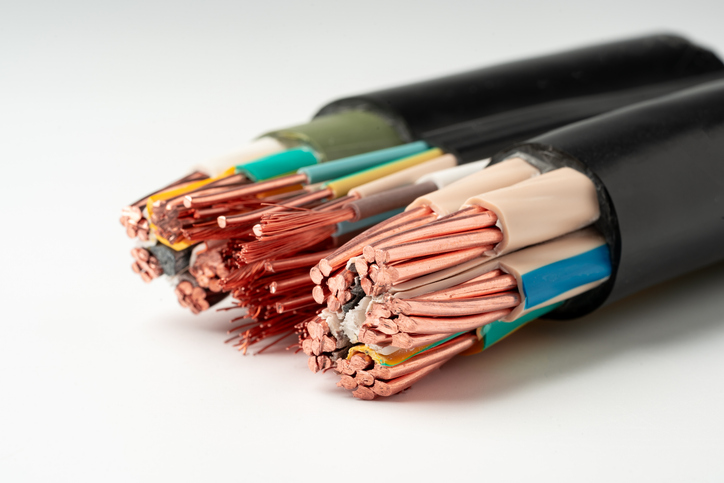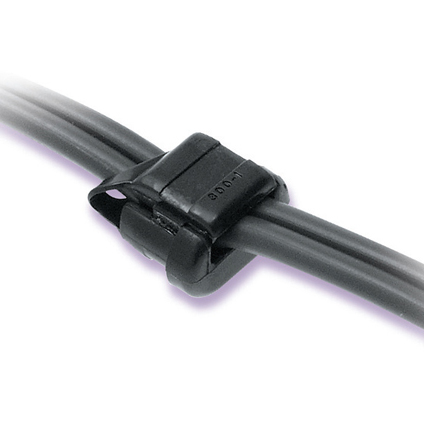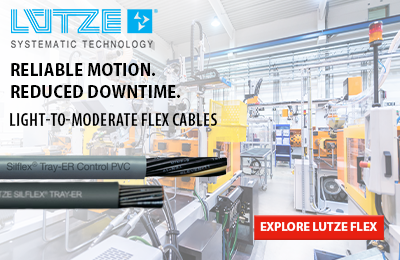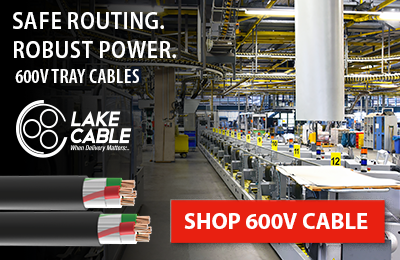Expert Guide to Industrial Automation Cables
 Since the early days of manufacturing, automation has played a crucial role. As technology forges ahead, so does the need for reliable industrial automation cables to connect and network components for data exchange.
Since the early days of manufacturing, automation has played a crucial role. As technology forges ahead, so does the need for reliable industrial automation cables to connect and network components for data exchange.
In manufacturing and industrial production automation environments, complex systems require accuracy, precision, and durability in all components, including control cable and wiring. When downtime can cost your organization considerably, you must ensure that every part is reliable and of the highest quality.
At IEWC, we carry high-performance power distribution cables to support your sensitive equipment's automated machinery, production lines, and safety systems. Our industrial automation cables support the new demands of data communication and keep your manufacturing floor running efficiently.
What Are Industrial Automation Cables?
While the types of cable and wire can vary in manufacturing and automation, the cables are generally designed for data communication.
Automation cables carry information and signals between machinery components to assist in the automation process. The cables and wires transmit signals to equipment and robotics, telling the machinery what tasks to perform and how.
In the past decade, data exchange in manufacturing has become increasingly sophisticated thanks to technological advancements, requiring specialized networking equipment and cable solutions to transfer data via the IoT (Internet of Things). Increasingly, those in manufacturing rely on networked components to automatically transmit and communicate orders, plans, instructions, and even maintenance requirements. Reliable cable products meet a growing need.
Where Are Industrial Automation Cables Used?
Industrial automation cable assemblies are used to connect various machine components and subsystems. Cables are used in robotic machinery throughout many different industries, including pharmaceuticals, manufacturing, defense, transportation, and information technology. High-performance networks throughout manufacturing require high-efficiency industrial cables for automation equipment.
Automation can work between equipment, floors, sites, and locations. Automated communication increases the safety and efficiency of machinery. At a glance, manufacturers can tell when machinery needs an update or shows signs of wear or burn-out. It's easier to estimate job and lead times and head off any issues to avoid extended downtime.
For OEMS, industrial automation cable assemblies are crucial components supporting many tasks. Sometimes, automation cable must be flexible enough for repetitive movements without wear and degradation. In other cases, the cables and wiring must withstand harsh or dangerous environmental conditions. Industrial control cables are used in metal fabricating, wastewater treatment plants, robotic assembly facilities, throughout the manufacturing industry, and many aspects of motion and process control. Robotics perform many dangerous and sensitive material handling processes that humans cannot.
Certain types of cables can withstand high-temperature environments and even electromagnetic field interference to continue to perform a vital role. Specialized cables offer precise control of robotic elements, even under high mechanical stress. The modern automated industrial plant needs automation control cables to support production processes.
What Types of Cables are Used in the Automation Industry?
There are many different types of data cables used in industrial automation. Most industrial cables transmit data and connect components, but selecting the right cable for your application depends on the requirements of your specific applications. Here are the main types of automation cables.
Continuous Flex Control Cables
We carry hundreds of types of continuous flex cables. These control cables are highly flexible and built to withstand the rigors of repetitive and continuous motion.
Light-to-Moderate Flex Control Cables
Our light-to-moderate flex cables are flexible cables that can withstand bending and curving. These cables are typically not built to withstand repetitive motions like continuous flex.
EcoGen™ Wires and Cables
EcoGen™ wires and cables use specialized mPPE insulation. These eco-friendly products are Zero Halogen with no phthalates or heavy metals.
Torsional Flex Automation Cables
Torsional flex automation cables are another type of control cable. These cables hold up to applications with rotary and twisting motions, even over continuous periods.
Type CWCMC Cables
For the harshest environments, type CWCMC cables withstand temperature, moisture, and abrasion with an ultra-strong aluminum coating.
Troubleshooting Common Cable Issues
- Cable Abrasion and Wear: Use protective sleeving and secure cables to prevent excessive wear.
- Signal Interference Issues: Keep power and data cables separated to reduce interference.
- Common Installation Mistakes: Avoid over-tightening ties and ensure cables are properly routed.
Best Practices for Organizing Cables
- Labeling Cables and Components: Labeling helps to identify cables during maintenance, reducing downtime and error.
- Grouping and Routing Cables Properly: Group similar cables together and route them along designated paths to prevent tangling and interference.
- Minimizing Cable Movement in High-Motion Areas: In areas with moving machinery, use flexible cables and secure them to avoid excessive bending or abrasion.
Buying Automation Cables: What to Look For
When buying automation cables, what should you look for? How do you select the right automation cable for your application?
It's essential to look at each cable's features and consider the specs and requirements of the job you wish to perform. Although cable may seem like a minor component, it serves one of the most critical jobs in the automation process—transmitting data.
Buyers should seek the utmost reliability and quality for such a vital piece of equipment. When a wire or cable fails, it can mean losing time and product. Unplanned downtime can be extremely expensive and even dangerous should your team need to perform repairs on sensitive industrial equipment.
Get the peace of mind and dependability of choosing industrial automation cable from IEWC.
Explore our vast selection of high-quality wiring and cable. Please reach out if you need assistance selecting the right industrial automation cable or wire for your application. We're here to help ensure your team has the best components for the job. We offer innovative solutions with different types of cables for any application.Related Resources

What is a Cable?
Cable, or cabling, consists of the twisting together of two or more insulated conductors.Learn More
Flat Cable
Although flat jacketed cable can be constructed from the same range of wire types as those used in ribbon cable, in practice this configuration is usually restricted to vinyl insulated wires and vinyl jackets.Learn More
Twisted Component Cable Constructions
Cables composed of twisted components generally have better flexibility characteristics than parallel conductor cables.Learn More





